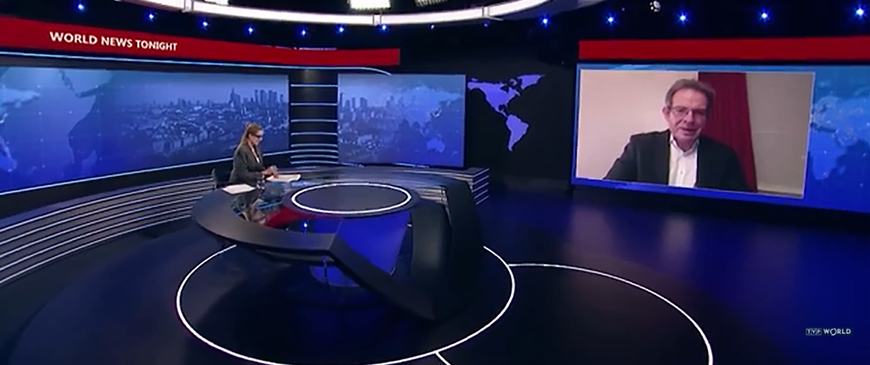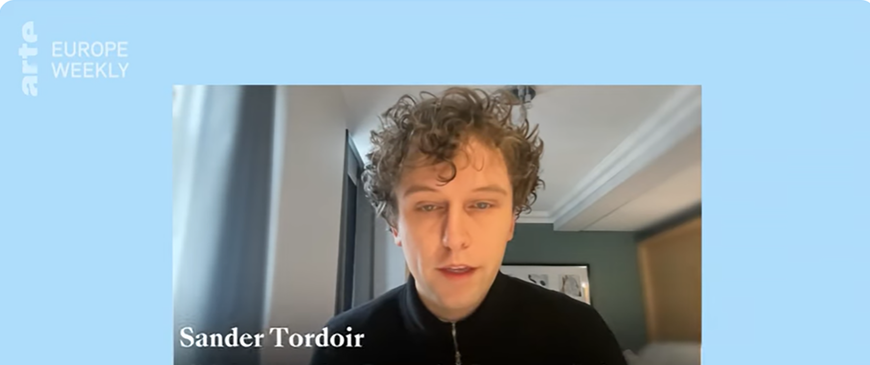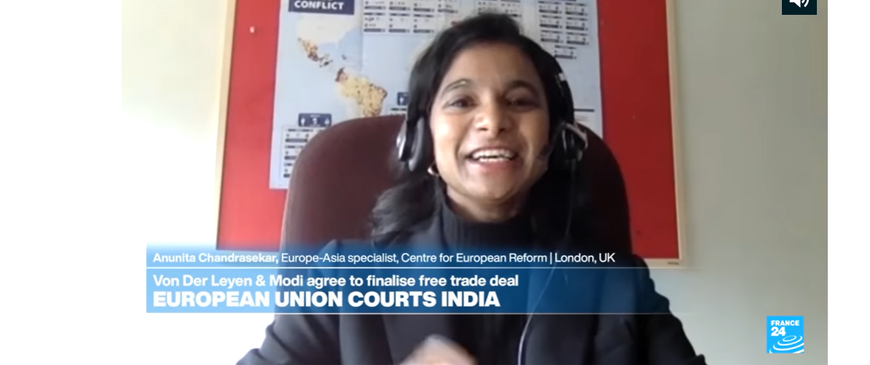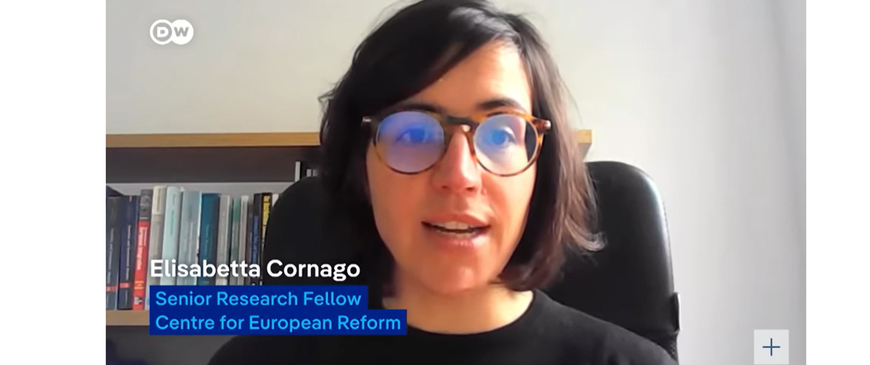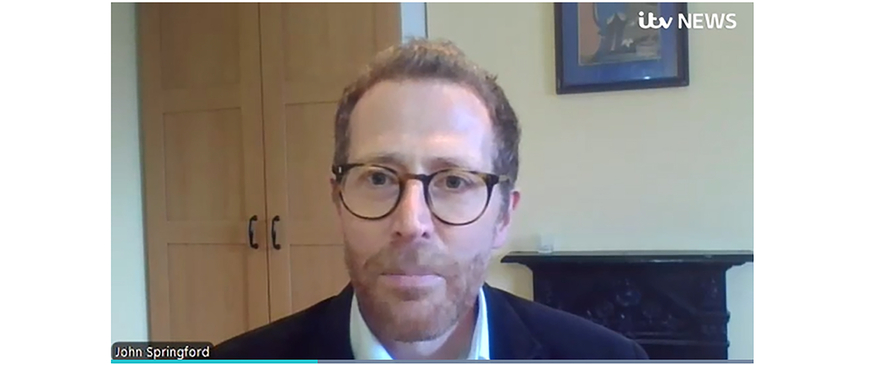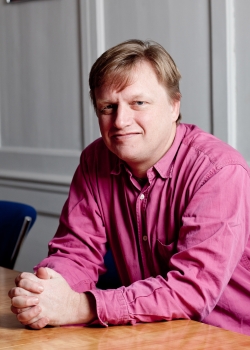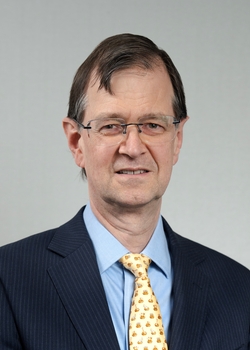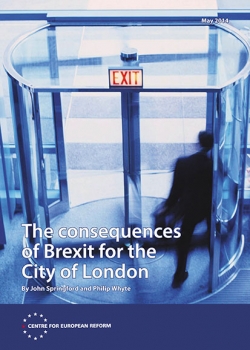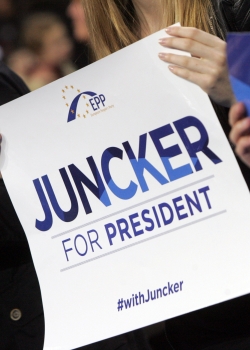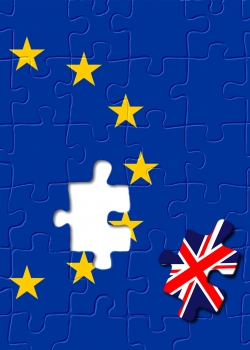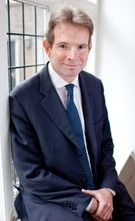Press
European Parliament tie-up complicates Cameron's reform push
05 June 2014
Reuters
"The risk is that it [Conservative MEPs aligning with right-wing parties in the European Parliament] is going to make it more difficult to get concessions out of the Commission and the Council in terms of Britain's reform agenda," said Stephen Tindale, an associate fellow at the Centre for European Reform.
Russia’s aggression a "moral threat" to Europe
04 June 2014
The Baltic Times
Russia’s invasion of the Crimea is “the most flagrant breach of international law in Europe, and the West’s response has been hesitant and divided,” said Ian Bond. “Georgia ought to have been a warning.”
Showing the West that Russia is not alone
03 June 2014
Inter Press Service
Ian Bond, director of foreign policy at the CER, told IPS: “In the past China and Russia’s cooperation in the UN Security Council was on what is common ground for them, i.e. that foreign powers should not interfere in the affairs of other nations. But Crimea has changed that”.
Europe struggles to avoid deflation’s grip
03 June 2014
The New York Times
“Inflation is so low,” said Simon Tilford, deputy director of the Centre for European Reform in London, “because wages have fallen sharply and consumer demand and investment have been depressed.”
ECB seen ready to tackle Europe's weak inflation problem
03 June 2014
The Wall Street Journal
"The lower inflation is, the harder it is for Spain or Italy to get on top of their debt burdens," said Simon Tilford, deputy director of the Centre for European Reform, a nonpartisan London think tank.
Die Briten und der "Brexit"
03 June 2014
Tageblatt Online
Das Centre for European Reform argumentiert sogar, dass seit der Finanzkrise das Königreich beim Regulieren sogar eher strenger war als die EU. Der "Brexit" würde die City, das Finanzzentrum von London, deshalb nicht befreien, sondern schwächen, glauben die Experten.
Juncker als Kommissionspräsident: Gefährlicher Griff nach der Macht (with English translation)
03 June 2014
Frankfurter Allgemeine
Das Europaparlament will Jean-Claude Juncker als Kommissionspräsidenten durchdrücken - eine gefährliche Idee! Es würde die Briten aus der EU drängen. Wenn Premierminister Cameron das sagt, klingt das nach Erpressung, aber es ist die Wahrheit. Ein Gastbeitrag.
Tumbling German inflation clears way for ECB blitz
02 June 2014
The Telegraph
Simon Tilford, from the Centre for European Reform, said the governing structure of the ECB prevents it from acting with the force of the US Federal Reserve or the Bank of Japan, which is needed to achieve full psychological effect.
In or out, your Euro-nightmare begins here
31 May 2014
The Times
There are three years to go before a possible referendum on Europe, and already it’s impossible to know what to think
European agency reports surge in illegal migration, fueling a debate
30 May 2014
The New York Times
In the UK, the recession has given an added piquancy to anti-immigrant backlash,” John Springford [of the CER] said. “There are fears that Romanians and Bulgarians will take away jobs, even as there is little evidence for this. When people’s prospects are being squeezed, migrants are an easy culprit.
EU Citizens turn backs on integration as vote results intensify euroscepticism
29 May 2014
Rianovosti
Ian Bond, the Director of the foreign policy CER says the divergent expectations of the European Parliament and EU member states set the stage for the failure of the Spitzenkandidat initiative.
Populists’ rise in Europe vote shakes leaders
26 May 2014
The New York Times
But assertions by Mr Farage that the European Union had suffered a fatal blow are overblown, according to Charles Grant, director of the Centre for European Reform, a British research group. “Cats have nine lives, and the EU has already had seven or eight,” Mr Grant said.
Anti-EU, far-right parties post strong gains in European elections
26 May 2014
The Wall Street Journal
"If the survival of the euro requires greater federalization, that's a worry because it's not going to happen," said Charles Grant of the pro-EU Centre for European Reform, based in London.
Anti-EU parties soar in “political earthquake” elections
26 May 2014
The New American
Charles Grant says the Parliament's primary concern “has been to get more power for itself and more money for the European Union”.
Fringe groups gain in European voting
25 May 2014
The New York Times
Mr Grant said, the European legislature “exists inside the Brussels bubble and doesn’t talk about things most people care about.” Its principal concern, he added, “has been to get more power for itself and more money for the European Union.”
Putin promises to 'respect' Ukraine's election
23 May 2014
The Wall Street Journal
"He has already achieved many of his objectives—he's got Crimea, he's made sure he has a seat at the table at whatever happens with the future of Ukraine—so he can afford to be magnanimous," said Charles Grant, director of the Centre for European Reform.
European elections: Is concern about Russia boosting EU popularity?
22 May 2014
The Christian Science Monitor
Ian Bond of the CER says “Putin has a narrative about European expansionism that rather appeals to [far-right] ideas that Europe is trying to take everyone over.”
Elections won’t solve many of eurozone’s problems
20 May 2014
Gulf News
The euro could be reformed fundamentally along the lines proposed by Charles Grant director of the CER.
Vladimir Putin faces giving ground in China to seal gas deal
19 May 2014
The Telegraph
“The reality is that China now holds the whip hand and they will drive a very hard bargain. For them this is just commerce,” said Ian Bond, from the Centre for European Reform.
First ever televised debates struggle to electrify EU voters
19 May 2014
Oman Daily Observer
Charles Grant of the Centre for European Reform think-tank also laments the fact that the candidates from the largest political parties “are remarkably similar,” even though they “claim to be offering voters a choice of Europes.”

